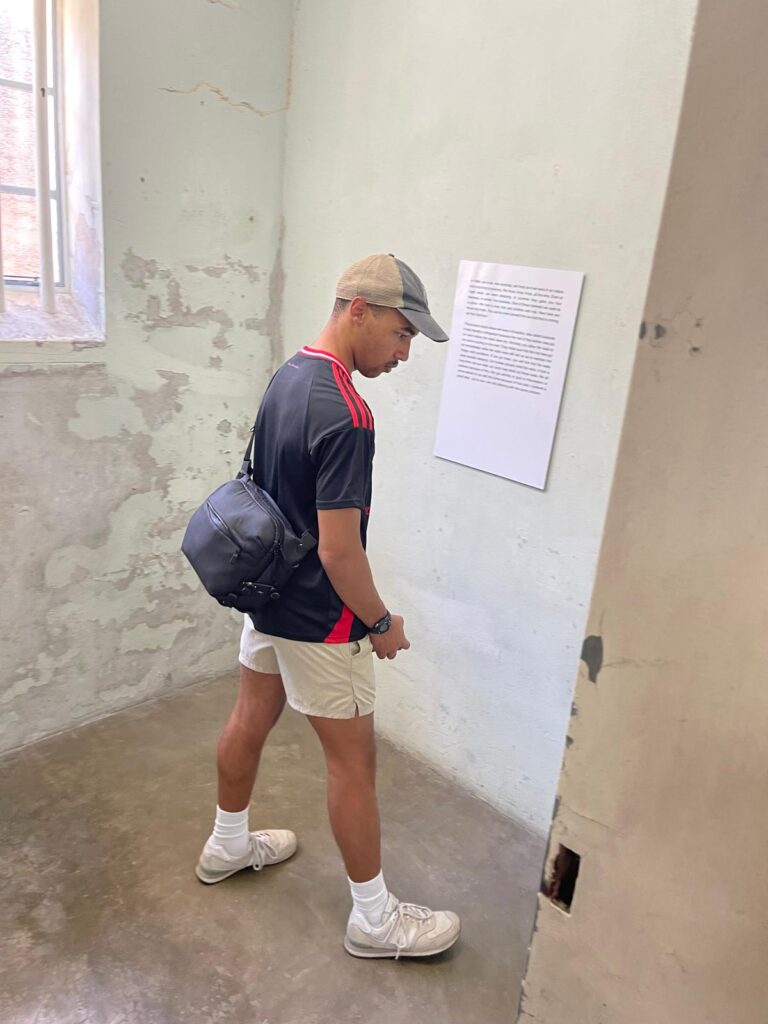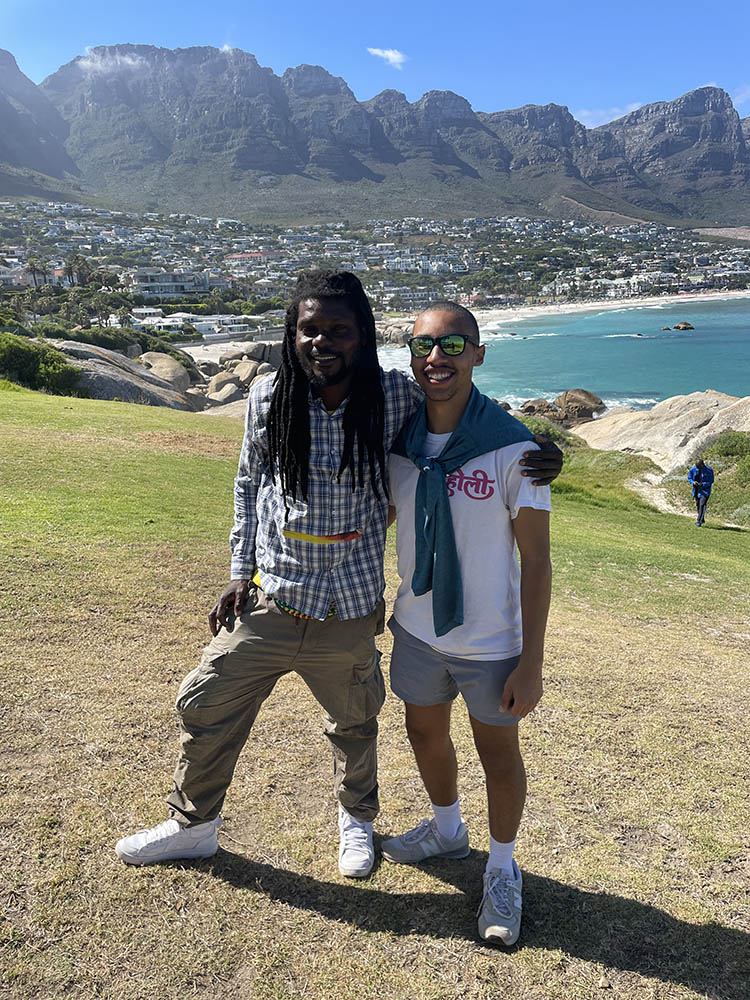Field Notes: Wheaton Filmmaker in South Africa
Each year, Wheaton College offers several Filmmaker in Residence Fellowships that fund students to travel with faculty-led international courses and produce films about the experiences and issues being studied. Film and New Media Studies major Elias Stevens ‘25 was awarded a fellowship to travel to South Africa in January with Professors James Freeman and Wesley Jacques for their course Witnessing Contemporary African Society. Elias recently spoke with Patrick Johnson, Chair of the Film and New Media department, about the experience.
What was the experience like being in South Africa and the work you did for the course?
South Africa was one of the most culturally unique places I’ve been. Having spent the fall semester abroad in Athens, Greece, spending winter break in Jo’berg and Cape Town was a massive shift! Being with a diverse group of people speaking so many different languages was a beautiful learning experience. Race was such a present topic in our conversations and daily experiences. My light skin cues the same questions: “Where are you from?” Or, “What are you?”
It was all on par with what we were learning through the course. The Apartheid in South Africa is an obvious pillar of the country’s history, but to dive deeper into the stories of some South Africans was extremely insightful. Mandela and many other activists taught me what leadership can really look like when circumstances progressively get more and more dire.
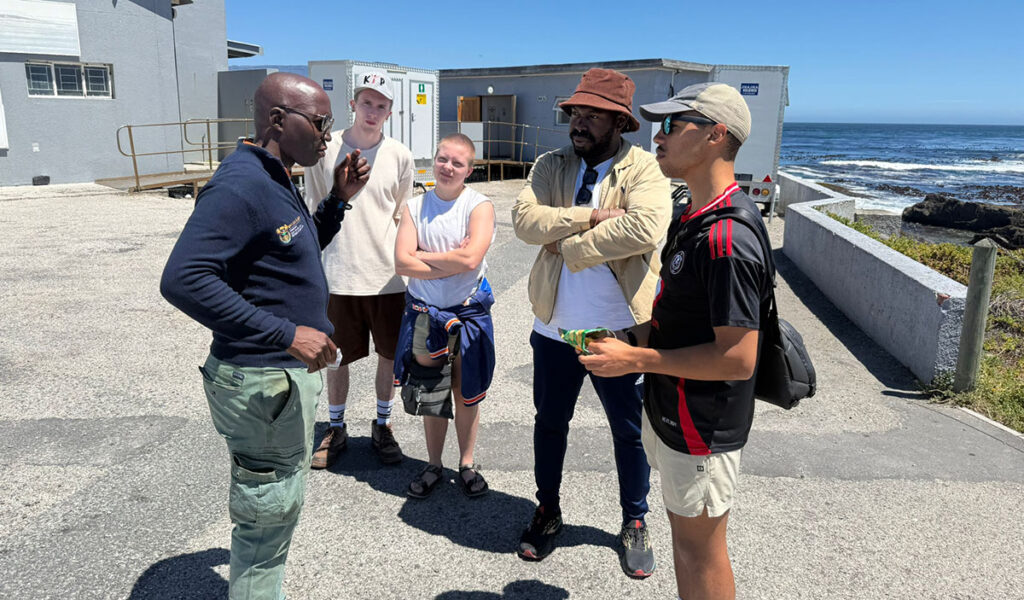
Please tell me a bit about the film/project you filmed?
“From: South Africa” is a short documentary that acts as a digital postcard from South Africans, to whoever they want. With 8 interviews, some spoke to the world, some to Africa, and others to loved ones. I wanted this doc to be a glorified forwarding of an email. Here’s what these people have to say. Listen!
What was an important lesson that you learned from the experience?
I as an artist I am more than just the tools that I use. As a photographer and filmmaker, technically, my craft doesn’t exist without a particular item. Without a camera, what even are you? Who am I? Well, when my tools were stripped from me, I had to finally ask these questions, and listen to the answers my higher power offered. I am an artist. Someone who understands light and color. A director and storyteller. Someone who curates social arenas where people can feel safe enough to be their most vulnerable and honest selves. But before all of that – I am a child of God. And that means that my future greatness is attainable, simply because of who I am, and who I serve. Thankfully, that’s an identity we all share (in my humble, naive, 22 year old opinion, one which you do not need to agree with). It may be unique (or unsettling) to hear that, but it’s my honest answer. I got too attached to my tools, and unknowingly made idols of them. “The camera is an extension of me,” I would say. But honestly, it became a barrier between me and my subjects. I othered myself as a result of the very thing that I thought was serving me, so much so I nearly deified it. Who is Tony Stark without that suit? Who am I without this piece of metal, plastic, and glass hanging by my neck (not that I ever really use a strap, but you get the point)? Fortunately, I had to learn this lesson the hard way. If I had my camera with me throughout this course, I would not have deeply connected with as many people as I did.
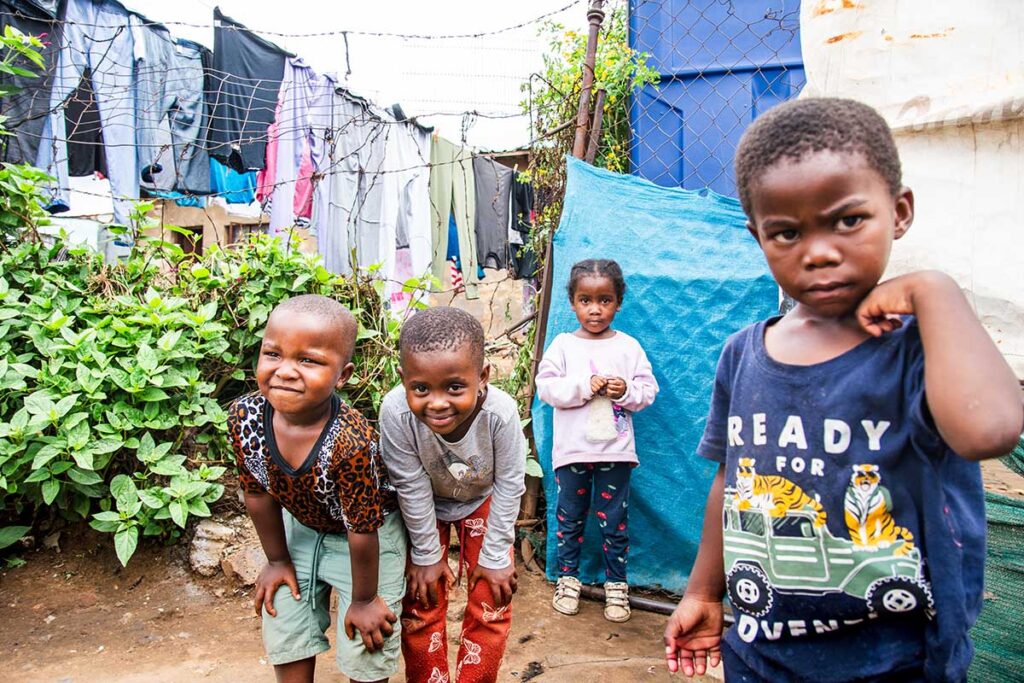
What were some of the challenges of filmmaking there?
The regions of South Africa that we visited had very few filmmaking challenges for me. My previous Filmmaker in Residency was in Madagascar, and the environment there was far more intense. But of course, no gear made things a little interesting. I resorted to my phone, and I was completely thrown off by the need to do so – more than I’d like to admit. As someone who tries to pivot and adapt quickly, I didn’t mentally pivot or adapt quick enough. This doc unfortunately suffers because of that. Additionally, a project like this can’t really be planned. Doc work is so reactionary – the story is still unfolding! Your return ticket is booked before you arrive, so you’re partially just waiting for the magic to happen. It very rarely happens on the first day, so much of your work is staying ready so you don’t have to get ready. My magic moments came by surprise and on the fly, about halfway through the trip.
Tell me more about one of these magic moments.
Our last night in Johannesburg, we students went to Nelson Mandela Square for dinner. I was recovering from some gnarly traveler’s sickness, so this was the first night I could actually join the crew for their routine dinners in the Square. On our way back to the hotel, we passed a man who I would later know as Hatim. Hatim would sit on the steps every night outside the mall’s entrance. This particular night, as we all walked past him laughing with stomachs full, he made a comment.
“Sure, walk past the beggar.”
Hearing him and wanting to at least acknowledge his presence, I said, “Have a good night, sir.”
“No, no good night, you all just ate food and I’m still here, and you walk past me as I stay here hungry,” he replied.
In my mind I felt a prompting: do something about it. I peeled away from my peers, walked back up the steps, and offered Hatim a meal from inside the mall. He insisted he come with me. He didn’t want me to fetch something for him. Well, within an hour’s conversation, I learned that Hatim is an extremely respectful Muslim who was having a hard night. We bonded over our love for God, and he taught me the nuances between Southern African cultures, seeing as he was an immigrant from Milawi. He and I agreed that before he was a homeless person, or a merchant, or an immigrant, he was a child of God. He called himself the Square’s protector, frequently educating tourists on best practices for safe travels in the area. Hatim’s goodness was corroborated by a security guard happily waving hello to him as we walked through the mall. “See, I told you, they know me here!”
At the end of our talk, I got to interview Hatim, and it is my proudest piece of film from my two weeks in the country. Thank you, Hatim, for checking my kindness, and for the great conversation.
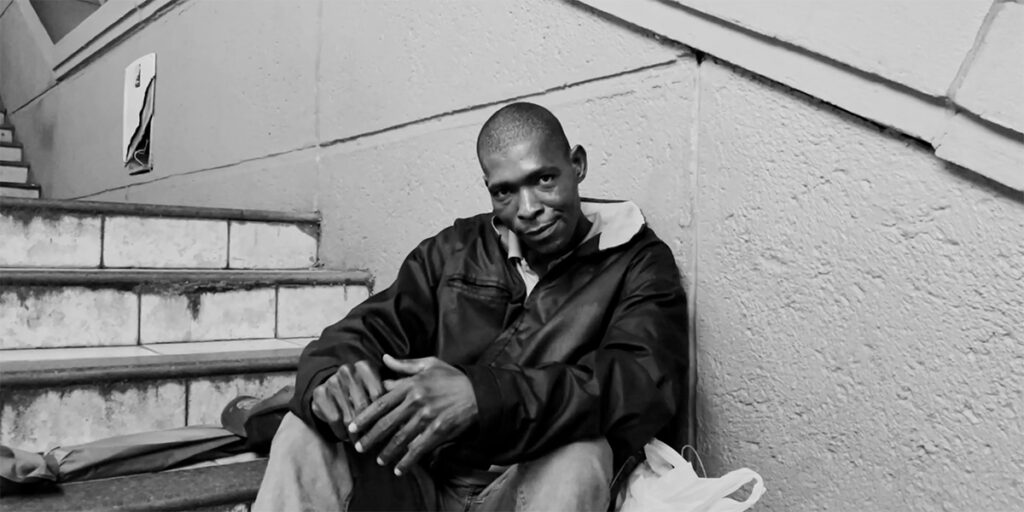
What is the next step for the project and in your journey as a filmmaker/storyteller/creative?
“From: South Africa” deserves to be polished editorially. The reason it isn’t finished and shipped off to film festivals yet is because it preceded and heavily influenced Dubaku Brothers, my senior capstone project. Dubaku Brothers completely consumed my final semester at Wheaton, and there was little to no room for any other work. Although, the spirit of South Africa and my interviewees for the doc can be felt in my capstone. After raising $11,000 through crowdfunding and Wheaton grants, shooting for six days with a blended crew of professionals and Wheaton filmmakers, we are in the thick of editing. It’s safe to say that my team and I will be spending plenty of time behind our monitors between these two projects!
While working on these films, I’m still freelancing as always this summer. Now is the time to set my business up as best as possible before I go on a mission for two years in the fall. As a missionary of the Church of Jesus Christ of Latter-Day Saints, I’ll be spreading some cool news and connecting with some lovely people, somewhere in the world. I can’t wait to make photographs on this journey. I believe this experience will directly impact my intentionalities as a director and artist for the rest of my life.
